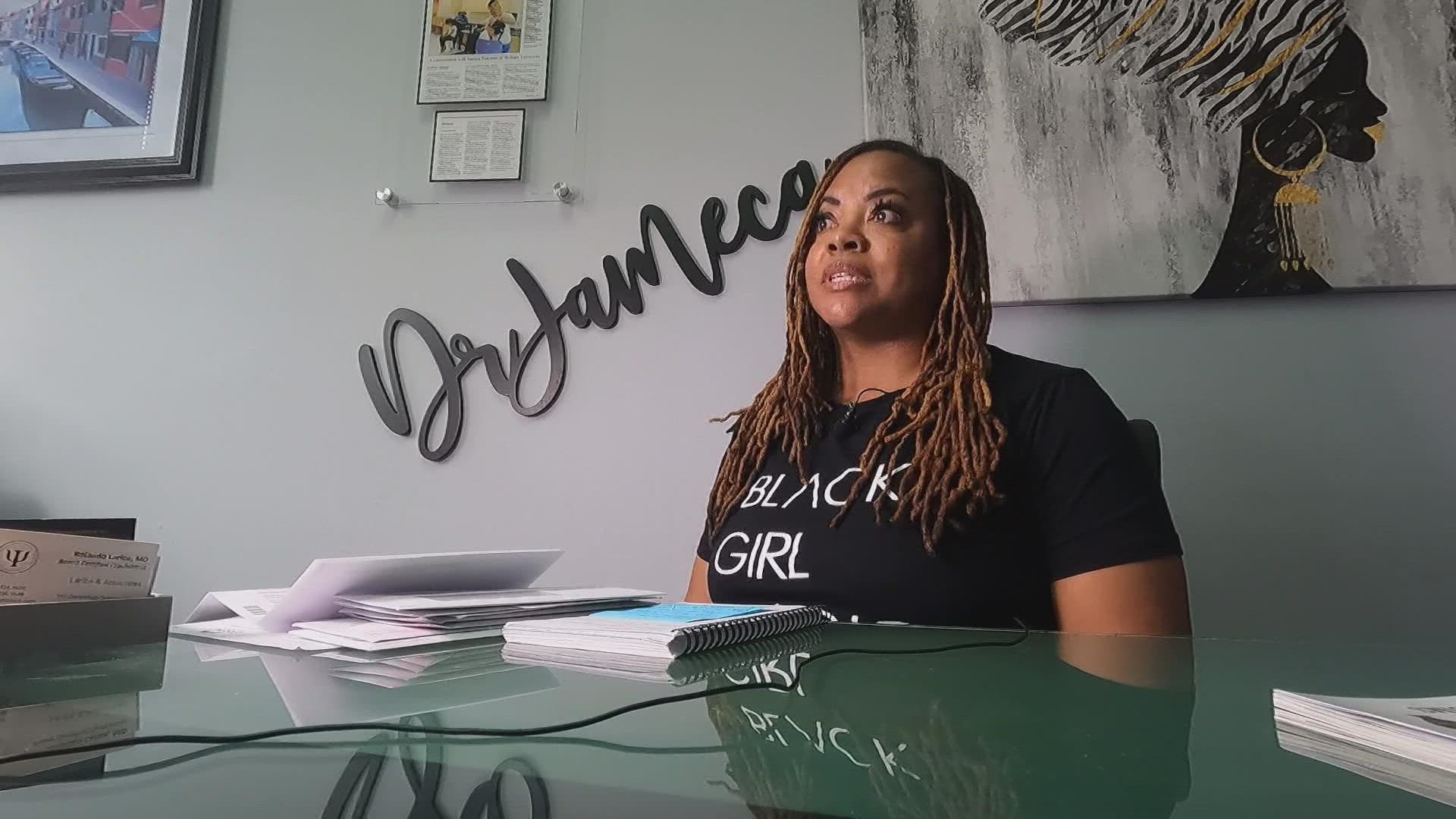ST. LOUIS — Three people, including the shooter, died and seven others were injured in a shooting at a south St. Louis high school Monday morning.
The trauma of this event can linger for a lifetime for anyone involved.
“Going into conversations with loved ones, the best thing is, really, don’t be afraid to show your reactions, because we all have reactions," said Dr. Jameca Cooper, Webster University School of Psychology Program Director and Psychologist.
Cooper said it's important to talk to and listen to those we love.
“Talk to them about how unusual this is, it's not normal. I think the more that it happens, I think people can be desensitized toward it," she said.
She said it's important to be empathetic with one another after this tragedy. She said trauma has no timeline, and that everyone's healing process is different.
"Empathizing with the other person is very important but it's also important to share that you, too, feel anxious, afraid, sad, devastated, about this violence in the schools," Cooper said.
She also wants families and loved ones to be mindful of other ways trauma can take form for those affected by the shooting.
“You could see the trauma, sadness, anxiety in other ways," she said. "Maybe abnormal bedtimes, maybe behavioral issues, maybe appetite or sleep issues. Be on the lookout for any of that.”
Another expert said we need to consider how years of hardships for children under age 18, most recently including the pandemic, have already placed trauma on their school experiences.
“Our children have experienced trauma, they continue to experience trauma, and they’re going to continue to feel triggered," Dr. Claire Martin, Webster University Counseling Department Assistant Professor and Licensed Professional Counselor, said.
"Who's the best person to talk to them about it other than the people they actually trust?" she said. "The parents, the caretakers, the officials from the school, a school social worker, a school psychologist, a counselor."
Martin also said while it's hard to control our fears, we can control the steps we take as a community to keep our schools and our children safe.
“Can you guarantee that we are taking the necessary measures to make sure that the school environment is safe,” Martin said.
There are free resources available for children and adults struggling with mental health:
- Behavioral Health Response: 314-469-6644 or 314-819-8802 (youth helpline)
- Compass Health Network: 888-237-4567
- Safe Connections: 314-531-2003
You can also dial 988 to connect with the National Suicide Prevention Lifeline.

